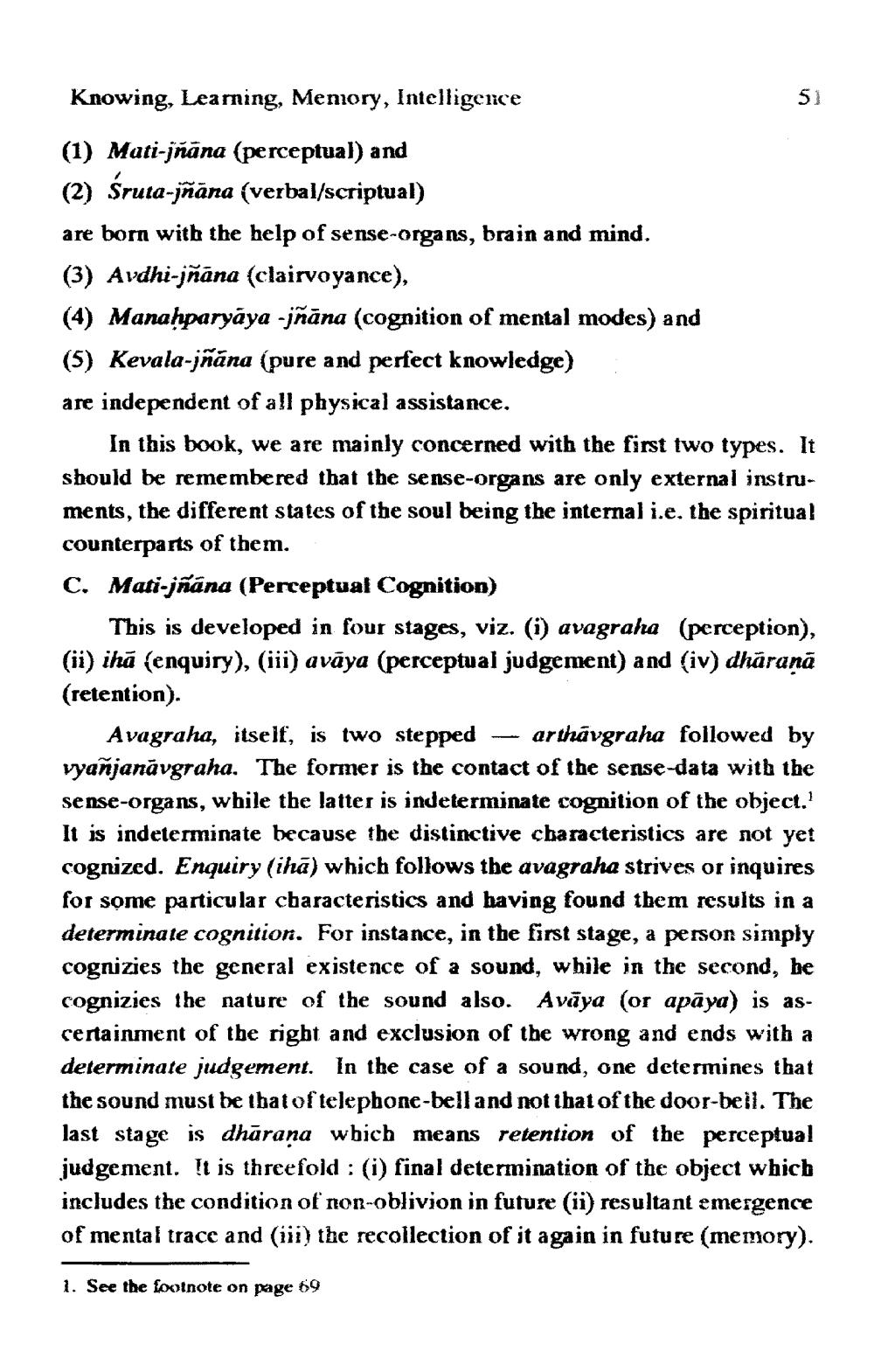________________
Knowing, Learning, Memory, Intelligence (1) Mati-jñāna (perceptual) and (2) Śruta-jñāna (verbal/scriptual) are born with the help of sense-organs, brain and mind. (3) Avdhi-jñāna (clairvoyance), (4) Manahparyāya - jñāna (cognition of mental modes) and (5) Kevala-jñāna (pure and perfect knowledge) are independent of all physical assistance.
In this book, we are mainly concerned with the first two types. It should be remembered that the sense-organs are only external instruments, the different states of the soul being the internal i.e. the spiritual counterparts of them. C. Mati-jñana (Perceptual Cognition)
This is developed in four stages, viz. (i) avagraha (perception), (ii) ihã (enquiry), (iii) avāya (perceptual judgement) and (iv) dhāraņā (retention).
Avagraha, itself, is two stepped — arthavgraha followed by vyañjanāvgraha. The former is the contact of the sense-data with the sense-organs, while the latter is indeterminate cognition of the object. It is indeterminate because the distinctive characteristics are not yet cognized. Enquiry (ihā) which follows the avagraha strives or inquires for some particular characteristics and having found them results in a determinate cognition. For instance, in the first stage, a person simply cognizies the general existence of a sound, while in the second, be cognizies the nature of the sound also. Avāya (or apāya) is ascertainment of the right and exclusion of the wrong and ends with a determinate judgement. In the case of a sound, one determines that the sound must be thatof telephone-belland not that of the door-beil. The last stage is dhārana wbich means retention of the perceptual judgement. !t is threefold : (i) final determination of the object which includes the condition of non-oblivion in future (ii) resultant emergence of mental trace and (iii) the recollection of it again in future (memory).
1. See the footnote on page 69




